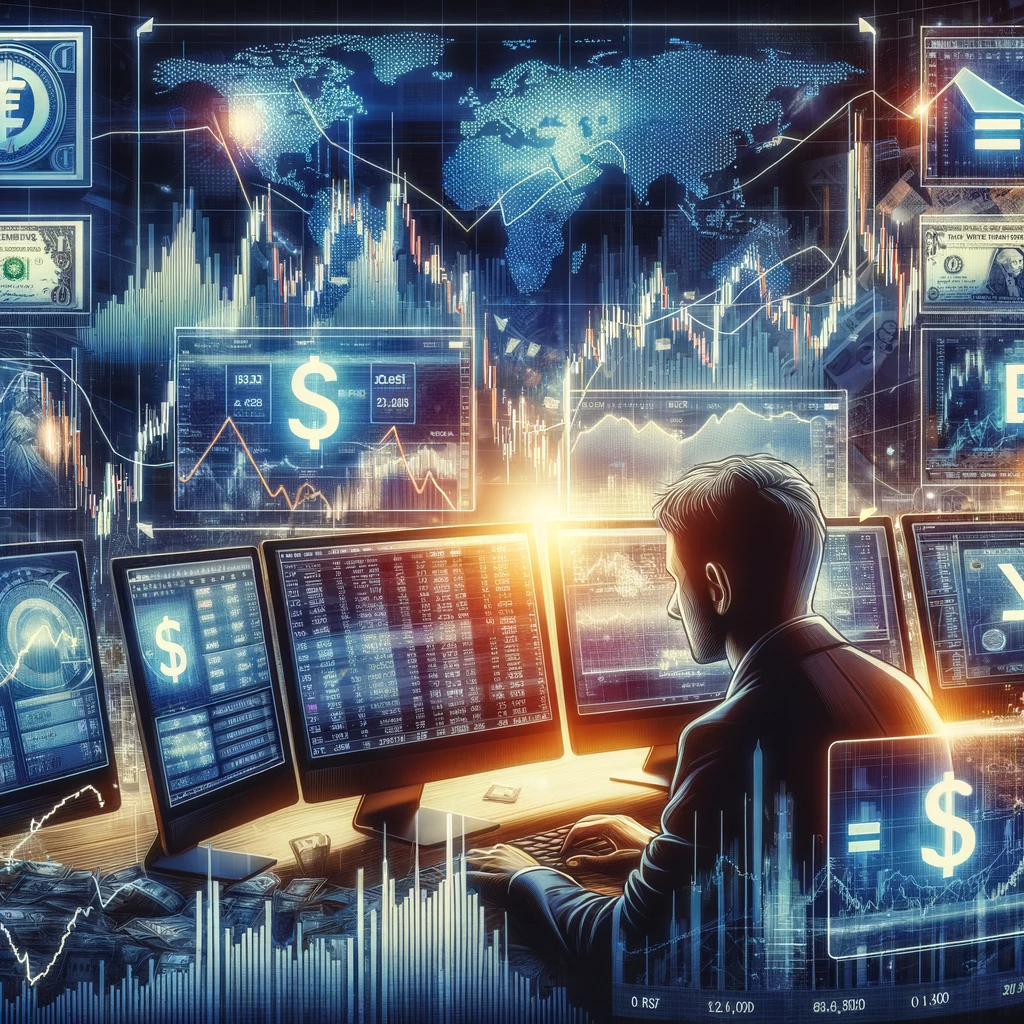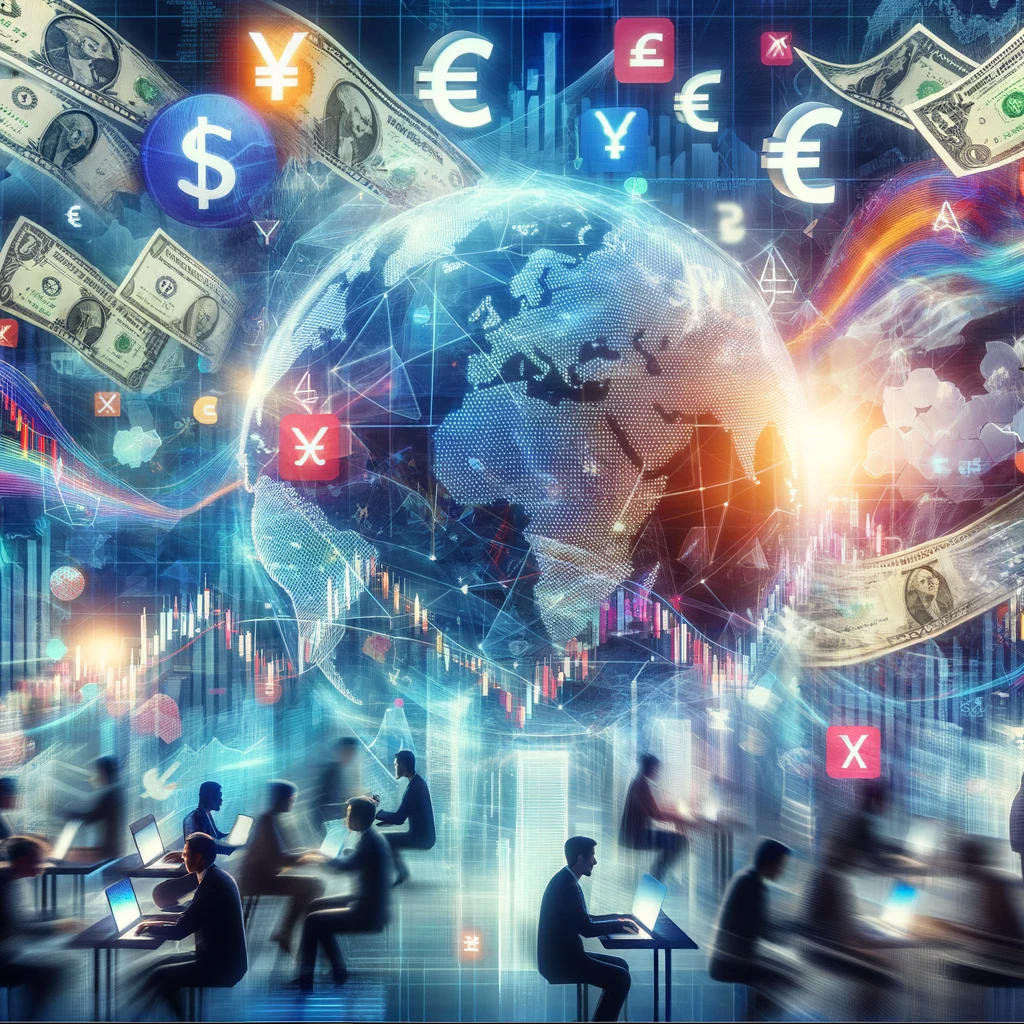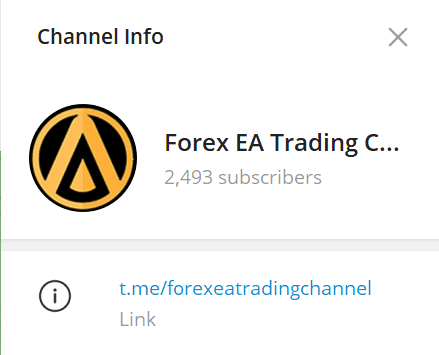What is Forex:


In the realm of financial trading, a question often arises: “What is Forex?” Forex, short for Foreign Exchange, represents the global marketplace where currencies are bought and sold against each other. This dynamic market is the backbone of international finance, driving trade, investments, and economic policy. This comprehensive article aims to demystify Forex, elucidating its core principles, operational structure, and the pivotal role it plays in the global economy.
The Essence of Forex Market:
“What is Forex?” is not just about understanding a term; it’s about grasping the sheer scale and scope of the world’s largest financial market. With a daily turnover surpassing $6 trillion, the Forex market dwarfs other financial markets in terms of volume and liquidity. Operating 24 hours a day during weekdays, it facilitates the continuous exchange of currencies by participants from around the globe.
Key Characteristics of Forex Market:
- Unparalleled Liquidity: The Forex market’s vast trading volume ensures high liquidity, enabling traders to buy and sell currencies without significantly impacting the exchange rates.
- Global Accessibility: Thanks to technological advancements, “What is Forex?” is a question that can be answered by anyone with an internet connection, allowing global access to the market.
- Leverage Opportunities: Forex trading offers substantial leverage, empowering traders to hold larger positions with a relatively small capital outlay. However, it’s crucial to acknowledge that while leverage can amplify gains, it also escalates the risk of losses.
- Market Continuity: Operating round the clock, the Forex market provides constant trading opportunities and the ability to react promptly to international economic events.
How Does Forex Trading Function?


Forex trading involves the simultaneous buying of one currency while selling another. This is typically done in pairs, for example, EUR/USD (Euro/US Dollar). Traders speculate on currency movements with the goal of profiting from fluctuations in exchange rates. For instance, if you predict the Euro will appreciate against the US Dollar, you would buy EUR/USD. If your prediction is correct, and the Euro strengthens, you can sell the pair at a higher rate, thereby realizing a profit.
Who are the Forex Market Participants?
- Banks and Financial Institutions: These major players deal in massive volumes, driving the short-term dynamics of currency prices.
- Corporations: Firms engaged in international trade engage in Forex to hedge against the risk posed by fluctuations in currency values.
- Governments and Central Banks: Entities like the Federal Reserve influence the Forex market by adjusting monetary policy, managing currency reserves, and implementing strategies to stabilize or stimulate their national economy.
- Individual Traders: With the proliferation of online platforms, individual traders are a growing force in the Forex market, enhancing its liquidity and complexity.
Navigating the Risks of Forex Trading:
While the question, “What is Forex?” includes understanding its profit potential, it’s equally crucial to recognize its associated risks:
- Market Volatility: Forex markets can experience swift price changes due to various factors such as economic reports, geopolitical tensions, or shifts in market sentiment.
- Leverage Risks: High leverage can lead to significant gains but also substantial losses, sometimes exceeding initial investments.
- Interest Rate Variability: A country’s currency valuation can be influenced by changes in its interest rates, impacting Forex trading strategies.
- Country-Specific Risks: Economic stability, regulatory shifts, or political uncertainties can significantly affect a country’s currency strength.
Conclusion:
The question, “What is Forex?” uncovers a world brimming with possibilities for those ready to dive into its complexities. It’s a market influenced by a myriad of factors, from global economic trends to the collective actions of its myriad participants. While Forex trading offers the potential for considerable returns, it necessitates a deep understanding, strategic planning, and careful risk management. Regardless of whether you’re a seasoned trader or a newcomer, continuous learning, diligent market analysis, and prudent decision-making are indispensable in successfully navigating the intricate world of Forex trading.
Final Thoughts:
Embarking on your Forex trading journey requires a solid educational foundation, practical experience through demo accounts, and possibly guidance from seasoned traders or financial advisors. In answering “What is Forex?” remember that knowledge, strategic planning, and risk management are your most valuable assets in this vibrant and ever-evolving market.
For my contact:
You should first send me a friend request on MQL5, this will make it easier for me to connect and best support you with technical issues: https://www.mql5.com/en/users/tuanthang
– Join our Telegram Channel for new updating: https://t.me/forexeatradingchannel
– Recommended ECN Broker for EA – Tickmill: https://bit.ly/AdvancedTickmill
– Recommended Cent/Micro Account Broker for EA – Roboforex: https://bit.ly/AdvancedRoboforex
– To use an EA you need a VPS. Recommended VPS for EA – Chocoping: https://bit.ly/AdvancedVPS. When you open the account type in the discount code to get 5% off: THANGEA5
– If you want to ask me any question or join our private group chat for traders. Please contact me through Telegram: https://t.me/thangforex







